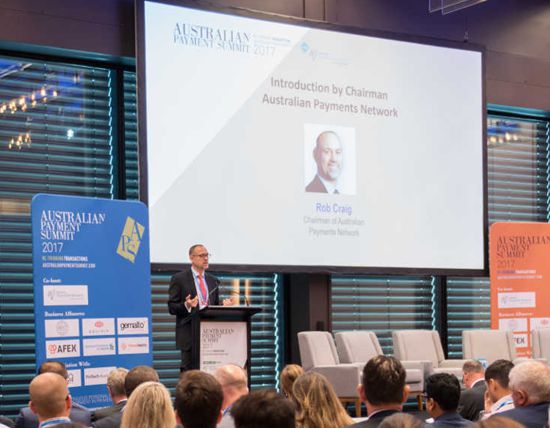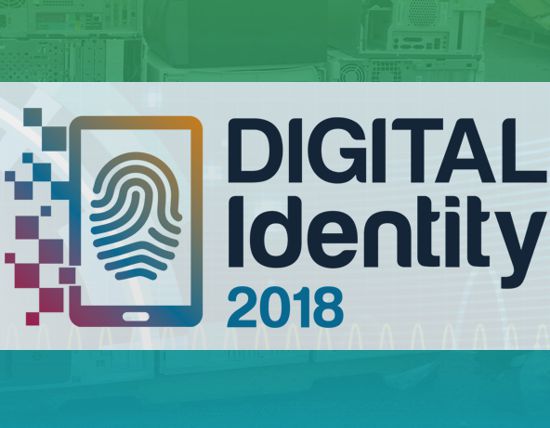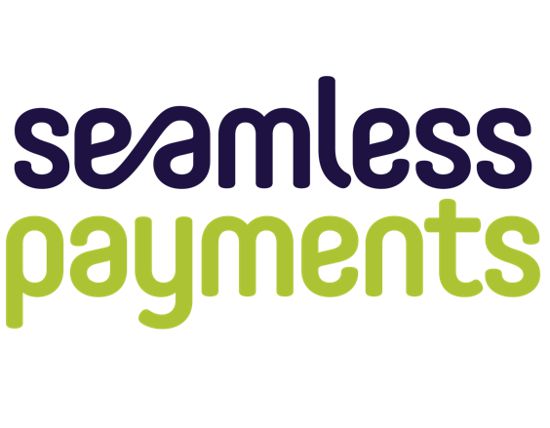CEO's Corner
"It’s our job to enable change by working with industry to focus on the right things, making sure policy settings are right, and welcoming in new players."
As the NPP starts to embed a new way to pay and we start to look ahead at the next big and exciting development, I’m struck by the increasing pace of technology development. William Gibson, the Science fiction writer of Neuromancer says that “The future is already here, it’s just unevenly distributed”. And this couldn’t be more relevant for technology.
It’s our job to enable change by working with industry to focus on the right things, making sure policy settings are right, and welcoming in new players. As we embrace this change, and with the Winter Olympics not long behind us, I am reminded of Wayne Gretzky’s perhaps overused advice that we need to “skate to where the puck is going, not where it has been”.
But in this technologically advancing world, this is easier said than done. Development cycles are increasing. Keeping your eye on the puck is getting harder and harder, and trying to move an industry to where it needs to be, is increasingly challenging.
Many of the changes we are facing are exponential – the puck is moving faster and faster. The problem with exponential technology is that it creeps up on us because it looks flat for a long time. Our brains are not wired for it – most of us are linear and continue to predict linear. Experts continue to predict linear outcomes. Any exponential technology starts off expensive and needs early adopters that are willing to pay a premium. It’s difficult to pre-empt which of these ideas will win and create a network effect for payments. Three trends in technology indicating where the puck might be going are worth noting:
- Mobile is winning – especially in global markets where there is minimal legacy infrastructure. The Money20/20 Asia race was won by a mobile wallet, indicating that mobile wallets are the most readily accepted form of payment across Asia.
- Tech networks are changing how markets develop – this brings new meaning to “network effects” as we start to see what happens when networks combine. We need look no further than India to see how big tech companies like Google are bringing their existing customer base and effectively creating a payment infrastructure with their network. Google’s mobile payments app Tez’s ‘Cash Mode’ allows secure proximity payment to other Tez users, without sharing personal details. Across Asia, the ride-hailing app operator Grab launched a payments platform, followed by a financial services platform and then, in March 2018, acquired Uber’s Southeast Asia operations. And in return, Uber gained a 27.5% stake in Grab’s combined business.
- Data is power – but there is change underway in the way data is managed – already we are seeing shifts in the way the 4 horsemen (Apple, Amazon, Google, Facebook) are perceived. Rogoff recently said that “data is the heart and soul of the monopoly power” of big tech companies. It’s here that the puck is moving particularly fast. The power construct is different and its changing by the day. We are moving to a world where we need to make sure a broader set of participants benefit from the power of data. Data-smithing is a relatively new profession that will evolve from big data like engineering did from the industrial revolution. It is likely that we will need slightly different infrastructure to support this. There are signs that Blockchain, AI – or a combination of both – will support a different kind of infrastructure and this will create a different form of power.
While the technology developments currently underway are the source of big and exciting developments, technology is not enough. We need a new way of thinking, a new approach to collaboration, as we sharpen our ice skates and become better at skating to where the puck is going.
Leila Fourie
AusPayNet Events
This quarter, we held a number of member sessions on digital identity and open banking.
Our accelerator event brought together some 70 participants from over 60 organisations to jointly address card-not-present fraud.
Scroll down to continue
Bringing the network together
Our member events provide an opportunity to discuss key trends shaping the payments landscape and look at how other countries are approaching similar challenges.
We kicked off this quarter with two sessions on digital identity and authentication. In the first, Thomson Reuters (USA) discussed the evolving world of Know Your Customer (KYC) and how it plays a foundational role in our understanding of digital ID. In the second, Andrew Shikiar (USA-based) from FIDO Alliance ran a webinar session on FIDO’s approach to stronger user authentication.
The Australian Government’s Final Report on the Review into Open Banking points to the UK as a starting point. For this reason, we invited ForgeRock, provider of the Reference Bank Application for UK Opening Banking, to share insights on the UK experience at our member event on 28 March.
More information on these sessions is available by following the links to our blogs below.
CNP Fraud Accelerator Forum
Collaboration is critical to tackling card-not-present (CNP) fraud. On 21 February, in co-operation with the Reserve Bank of Australia (RBA), we hosted an accelerator event bringing together the entire range of stakeholders to expedite a new, whole of industry approach.
The 70 participants reached clear consensus to develop within the next six months a high-impact industry framework for reducing CNP fraud in Australia, and agreed on the principles that will underpin that framework.
The RBA's Payments System Board has welcomed the participants' commitment encouraging them to continue to work closely with AusPayNet “to develop a clear and effective strategy that balances the interests of all stakeholders, including merchants”. We look forward to working with the wider industry on taking this forward.
Details about the event are available in our Media Release and recent blog post.
Events CalendarSelected Articles See All >
Industry News
We extended a fond farewell and warm welcome to a number of directors this month.



Recently, we released a new framework to support contactless ticketing initiatives in Australia.
February 2018 marked a historic milestone for the payments system with the public launch of the NPP – one of the most innovative infrastructures for real-time payments.
Scroll down to continue
Board updates
Farewells
On 1 April, long-serving director and past Deputy Chair, Stuart Woodward, left the Board following his resignation from CBA. Mr Woodward served as a director for almost 13 years and has been instrumental in many key initiatives undertaken by our company. Most recently, he was also Chair of the Nomination Committee, and Chair of the Fraud in Banking Forum.
Anne Collard has also left the Board following her resignation from ANZ effective 12 April. Serving most recently as Deputy Chair, Ms Collard has been an outstanding advocate for payments innovation and for the role of women in payments since joining the Board in September 2016.
On 5 April, Craig Kennedy, CEO of CUSCAL, resigned as the director elected by Credit Union members. Mr Kennedy also served as Chair of our direct entry management committee since his appointment in August 2016. We thank him for his leadership and insights, which he continues to provide on the Australian Payments Council.
Welcomes
Lynda McMillan, Head of Payments Representation Institutional Banking and Markets at CBA has replaced Stuart Woodward. Ms McMillan has served as an alternate director over several years and has had extensive experience across AusPayNet’s various committees and working groups.
ANZ’s new Head of Payments Industry, Jackie Kallman has replaced Anne Collard. Ms Kallman is well-known to AusPaynet, including through her contribution on our management committees.
Derek Weatherley, CEO of Indue Limited, is the new director representing Credit Union members. Mr Weatherley has had a close involvement with AusPayNet, most recently as an alternate director since August 2016.
More information on our Board is available here.
Supporting open loop transport payments
Our new Open Loop Transport Payments Framework has been produced in collaboration with the payments industry and transport authorities, and is designed to enable transport authorities to successfully implement open loop payments.
A Considerations and a Use Case document accompany the Framework providing among other things, recommendations on open loop best practice, and details on standard transaction flows. These documents are available to parties working with local transport operators on contactless payments initiatives.
Last year, together with Transport for NSW, we developed the framework for the Contactless Transport Payments Trial on the Manly ferry. Following its success, Transport for NSW expanded the trial in March 2018. Customers can now use their Mastercard, American Express or Visa cards (or devices such as smartphone or wearable) to pay their fare on all Sydney ferries and the L1 Dulwich Hill light rail.
For more information, read our recent blog post or contact us.
Fast, data-rich payments are here
The New Payments Platform started carrying payments between employees at participating financial institutions in November 2017, but it was a donation to a children’s charity by NPP Australia CEO Adrian Lovney on 15 February that marked the first ‘public’ payment.
Globally, there has been significant interest in the NPP’s development largely because of its unique design. The NPP comprises a layered architecture that splits the general-purpose infrastructure and the overlay services that sit on top. Other features include the use of ISO 20022 to support data-rich messages and an addressing service - ‘PayID’ – that lets customers make payments to a mobile phone number or email address, rather than a BSB and account number.
The first overlay service called ‘Osko’, provided by BPAY, is for near-instant person-to-person mobile payments. At a recent Australia-Israel Chamber panel discussion, which included our CEO Leila Fourie, BPAY’s CEO John Banfield reported that only three weeks after the launch, Osko was totalling some 80,000 transactions a day.
AusPayNet was instrumental in the NPP’s early development in terms of industry collaboration, governance, and structure. We are delighted to have been a part of this major industry initiative and congratulate NPP Australia on the build, launch and successful operation of the NPP.
Regulatory Round-up
We provide an update on the Open Banking Review, the Inquiry into Competition in the Australian Financial System, and the national digital identify framework.
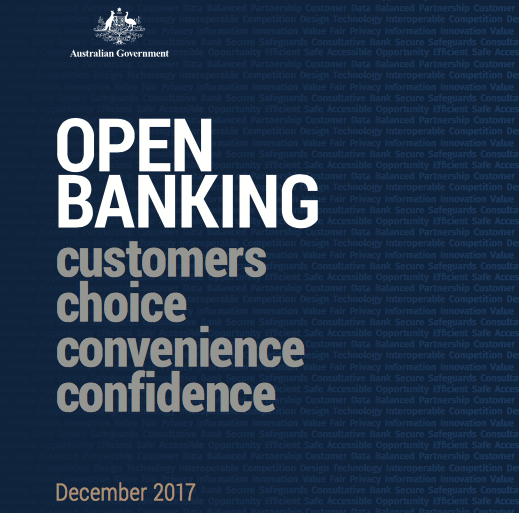
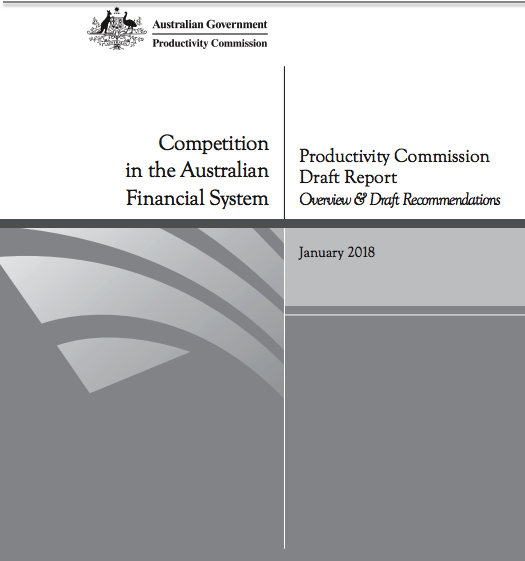
Final Report released on the Open Banking Review
On 9 February 2018, the Government released the Final Report into the Review into Open Banking in Australia announcing it would take further comments on the contents until 23 March.
The Report makes 50 recommendations, on the most appropriate model for implementing Open Banking, and proposes an ambitious timeframe for commencement - 12 months from the announcement of a final Government decision.
The Report draws heavily on the UK experience and proposes a multi-regulator model. The recommendations include the type of data to be shared and how it will be shared. The proposed data transfer mechanism would utilise application programming interfaces (APIs), using the UK open banking technical standards as their starting point.
Treasury has consulted on the Report’s recommendations and is now considering the responses. AusPayNet has participated in open banking workshops facilitated by Treasury to explore initial questions.
The Government is yet to respond to the recommendations in the Report. Open Banking will be implemented as part of the Consumer Data Right (CDR), which was announced by the Government in November last year. After banking, the CDR will be rolled out to other sectors such as energy and telecommunications.
Productivity Commission Draft Report: Competition in the Australian Financial System
On 7 February, the Productivity Commission (PC) released the Draft Report of its Inquiry into Competition in the Australian Financial System inviting further feedback by 20 March 2018.
In our post-draft submission, we commented on a number of the Draft recommendations and findings, such as interchange fees and merchant routing. In addition, we supported proposals for a review of Purchase Payment Facilities (PPF) and the ePayments Code. We also reiterated our views on account-switching and corrected some misstatements in the Report.
The draft findings and recommendations have the potential set the scene for financial regulation, including payments in the coming years. The Final Report is due to be provided to the Government by 1 July 2018.
Our submission to the Draft Report can be accessed below.
Trusted Digital Identity Framework
The Australian Government continues to refine its approach to digital identity, releasing the first component of its Trusted Digital Identity Framework (TDIF) on 21 February 2018.
The TDIF is designed to provide the foundations for consistent, secure and reliable digital identity. The release of these documents followed consultations with the financial sector, privacy advocates, technical experts and the public at large.
The 10 documents which make up the first tranche of the TDIF cover issues including accreditation, fraud control, and privacy requirements. A further two components will be released through the year, which will set the standard to manage an offline option for creating a digital identity, and to authorise individuals to act on behalf of a business.
AusPayNet continues to support the Australian Payments Council in its work on digital identity.
Submission to the Draft Report - Competition in the Australian Financial System





